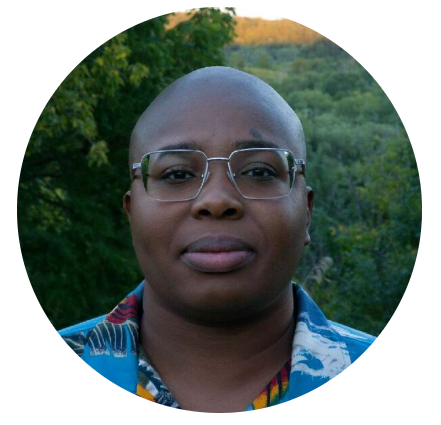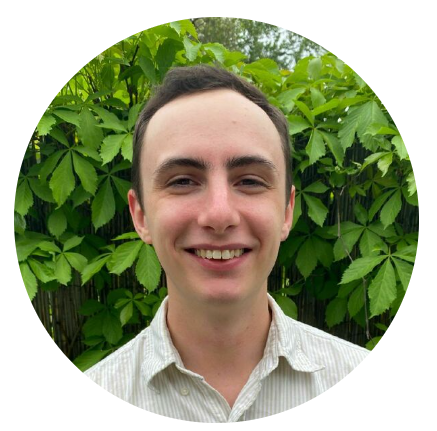Camille Lendor

Who are your favorite poets?
My favorite poets are Claudia Rankine, Ted Hughes, Anne Carson, Denise Levertov, Mark Waldron, Gerard Manley Hopkins, and Thomas Hardy.
If you could only recommend three films, what would they be?
That’s a good question! It changes from time to time, but right now, I’d say Midsommar (I’m a die-hard Ari Aster fan), Halloween (the 1978 version, of course!), and The Witch.
What’s your favorite book you read this year?
It would be a tie between Everything, All the Time, Everywhere: How We Became Postmodern by Stuart Jefferies and The Incredible Sestina Anthology edited by Daniel Nester.
What can you tell us about any writing projects you’re currently working on?
My favorite sestina is “The Guest Ellen at the Supper for Street People” by David Ferry. It’s by far one of the most memorable sestinas I’ve come across. What I can’t shake off about the poem is that the speaker in Ferry’s poem uses a classist tone to talk about Guest Ellen, so I’m working on a sestina in response to the poem that places Guest Ellen in a more empowered time in her life.
Do you have a favorite literary journal (print or online)?
Yes! My favorite journal is The Malahat Review because 1) go Canadian literature and 2) they publish a range of tones via the poetry and fiction pieces in each issue; it never feels like I’m reading only one kind of aesthetic.
Why is it important to read poetry in translation?
It’s important to read poetry in translation because there is great poetry circulating in other languages that is inaccessible to English readers unless it is translated (and vice versa when it comes to English texts). Without this practice, we wouldn’t be exposed to new ideas and unique images by authors who write in different languages, and there would continue to be poets not receiving the international recognition their writing deserves simply because their work does not have an English translation.
Do you have a favorite Action Books title?
Yes, my favorite Action Books title is The Prelude by Marty Cain.
What are you most looking forward to about working as an Assistant Editor of Action Books?
I’m looking forward to learning about the editorial and publishing processes and logistics involved in running an independent press!
Noah Loveless

Who are your favorite poets?
Some of the figures I often return to are people like Paul Celan and Susan Howe! Some I am new to but have been enjoying lately are Jhani Randawa and Hector Viel Temperley.
If you could only recommend three films, what would they be?
I am a fan of film and I am always wishing I was watching more! Some standouts that I have really enjoyed include Rossellini’s Journey to Italy, Derek Jarman’s films, especially Edward II, and Abbas Kiarostami’s Where is the Friend’s House?
What’s your favorite book you read this year?
A book I was extremely moved and unsettled and delighted by was Lungfish by Meghan Gilliss. The book is full of strange and very poetic language, thoughts, and scenes that bring about a distorting and slightly discomforting effect in the reader.
What can you tell us about any writing projects you’re currently working on?
I feel that I am in an earlier stage of putting together a writing project and I have been thinking about how I can create not just new projects or results but also how I can craft new tools
and approaches to reimagine the current notions I have of my writing project.
Do you have a favorite literary journal (print or online)?
Some of my favorites are Oversound and Tagvverk because of the exciting and inspiring missions to bring about strange and innovative work.
Why is it important to read poetry in translation?
I think reading poetry in translation is important because learning lots of languages is hard so translators do the intrepid work of venturing out and bringing back important works from other places, making special and unique works available to readers that wouldn’t otherwise find them. I am also interested in how a translation brings an entirely new construction of words and ideas into the native language that wouldn’t have been concocted otherwise. Further, translation is in a sense one of the deepest readings of a work, so I revere the level of engagement and dialogue instigated by the translator.
Do you have a favorite Action Books title?
One of my first encounters with Action Books was through Andra Rotaru’s Lemur which stunned me very deeply! Some recent favorites for me have been Valerie Hsiung’s efg, Lara Glenum’s The Hounds of No, and Oliverio Girondo’s In the Moremarrow.
What are you most looking forward to about working as an Assistant Editor of Action Books?
One thing I am most looking forward to here is getting to aid in Action Books’ mission of highlighting innovative, unusual, disruptive voices. I hope to help grow the space for such wonderful creators as well as improve my own poetic practice through my experiences here.
Camille Lendor is a poet from Toronto. She holds a BA in English from the University of Toronto and is an MFA candidate at the University of Notre Dame where she is an Action Books Editorial Fellow. Her work has appeared in Canadian Literature, PRISM international, The League of Canadian Poets, The Malahat Review, and Stellium Literary Magazine, among other publications. She is a 2022 Hatty Fitts Walker Scholarship recipient (Fine Arts Work Center) and a Pushcart Prize nominee.
Noah Loveless is a Notre Dame MFA candidate in poetry from Maine. He graduated summa cum laude from the University of Maine in 2020 with degrees in English and Philosophy. His work benefits from the merging of these fields, using poetry as a unique means of understanding and asking questions about topics like experience, self, and memory. During his undergraduate career he won UMaine’s Grenfell Prize for a portfolio of poems and he received a McGillicuddy Humanities Fellowship which he used to research the philosophy of Walter Benjamin. He is further interested in the wide field of language and the depth and dynamism of words. He lives in South Bend with his partner and two cats and likes to bake.